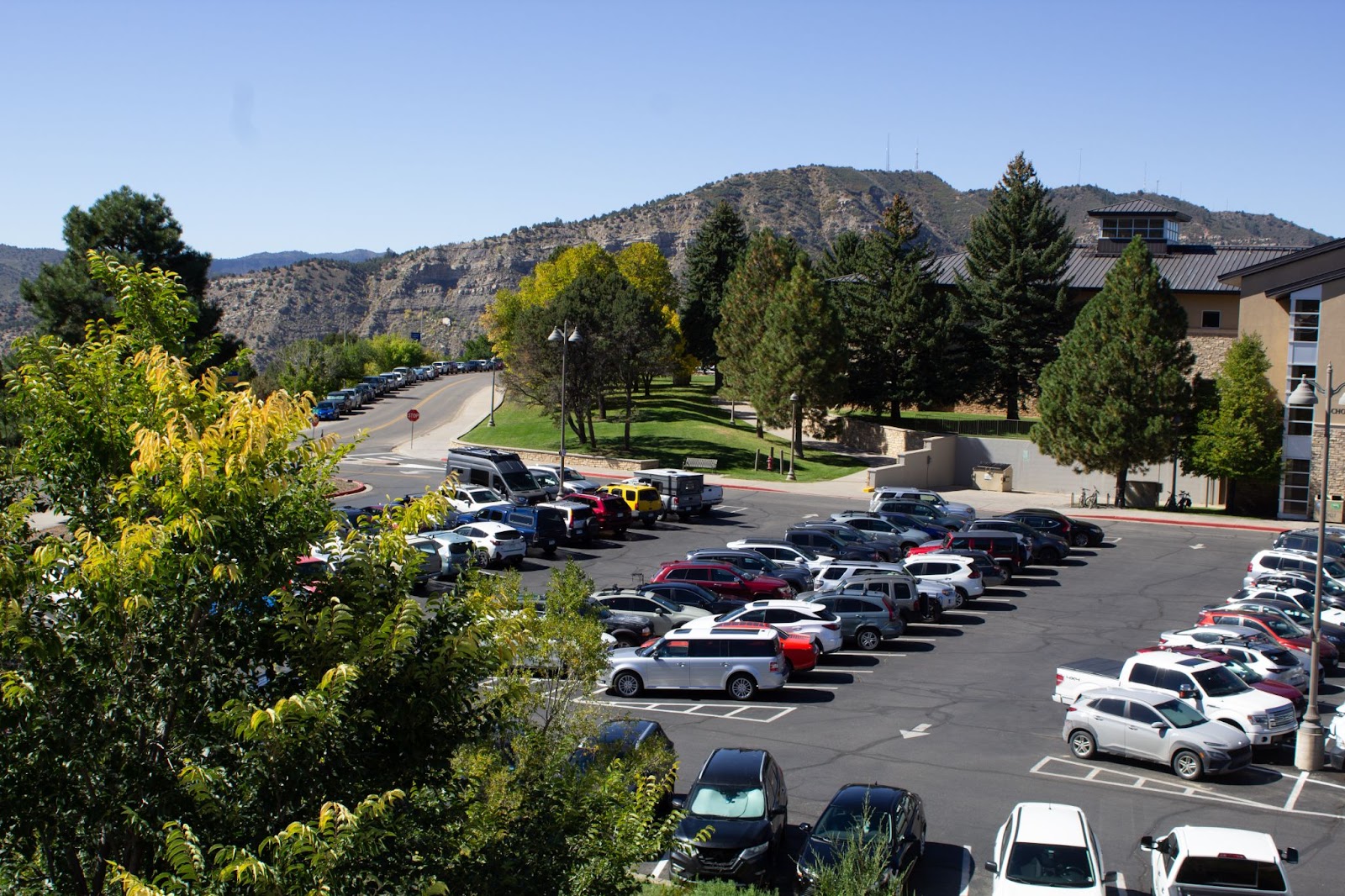
In recent years Fort Lewis College has implemented new policies that could help reduce limited parking across campus, as well as congested lots.
The question arises, who’s responsible for the increase?
In 2022, FLC Police & Parking Service Department increased the price for parking permits by $20, Deming said.
“$10 of that increase was to offset the cost of inflation,” Deming said.
The other $10 is going to be used to install cameras into parking lots across campus, which is on-going with the recent installment of a camera in the Centennial Lot, Deming said.
In 2023, the yearly estimated amount of fees from permits, fines and metered parking was $350,000, Deming said.
$200,000 of those funds are spent on the maintenance of roads and parking lots throughout the year, and during the winter season the costs for snow removal and equipment adds on, Deming said.
Deming said campus police work in collaboration with the physical plant to help maintain roads, lighting, signs and parking lot.
“I think a lot of people just don’t understand how expensive it is,” Deming said. “Yeah, I mean, to rent a front-end loader for one winter just to do snowplows—$31,000, that’s a lot.”
FLC Physical Plant contracts out parking lot repairs to private contractors, and they do basic maintenance such as snow removal and cleaning, Deming said.
In 2008 a parking study was conducted, and afterwards FLC implemented the residential and commuter parking lots to help minimize congested parking, Deming said.
The stadium parking lot was highlighted in the study, and so FLC decided that the separate permit should be reinstalled again, Deming said.

“I was a student here many years ago, and they used to have a stadium parking lot permit,” Deming said. “And it was way cheaper.”
Associated Students of Fort Lewis College President Brittany Bitsilly, said ASFLC has yet to speak on any future parking infrastructure plans and any related issues.
Luke Weber, a senior psychology student, said the current parking situation is unsatisfactory in terms of how FLC is going about informing students on changes that were made.
Weber said there’s a miscommunication problem when students purchase permits.
FLC has residential and commuter parking lots, and that distinction is not clearly highlighted to students, Weber said.
The price for permits is in a reasonable range, but the lack of parking toward the west half of campus makes it inconvenient to students, Weber said.
Parking permits are prorated throughout the semester and academic year, meaning the cost gradually decreases over time, and refunds are also treated the same, Deming said.
The cost for permits have decreased as of Oct. 1, Deming said.
FLC also offers ‘green passes’ for low-emitting and fuel efficient vehicles at a 20% discount rate, Deming said.
The cost for printing permits is estimated to be $7,000, which is due to the multiple types of permit passes that are offered, Deming said.
On Oct. 2, FLC Police found multiple forged parking permits across campus, prompting them to inform students via Instagram about the discovery, Deming said.
The consequences for distributing or possessing forged permits can range from verbal warnings, a $200 parking ticket and a class five felony charge with fines, which is rarely the case, Deming said in an email.